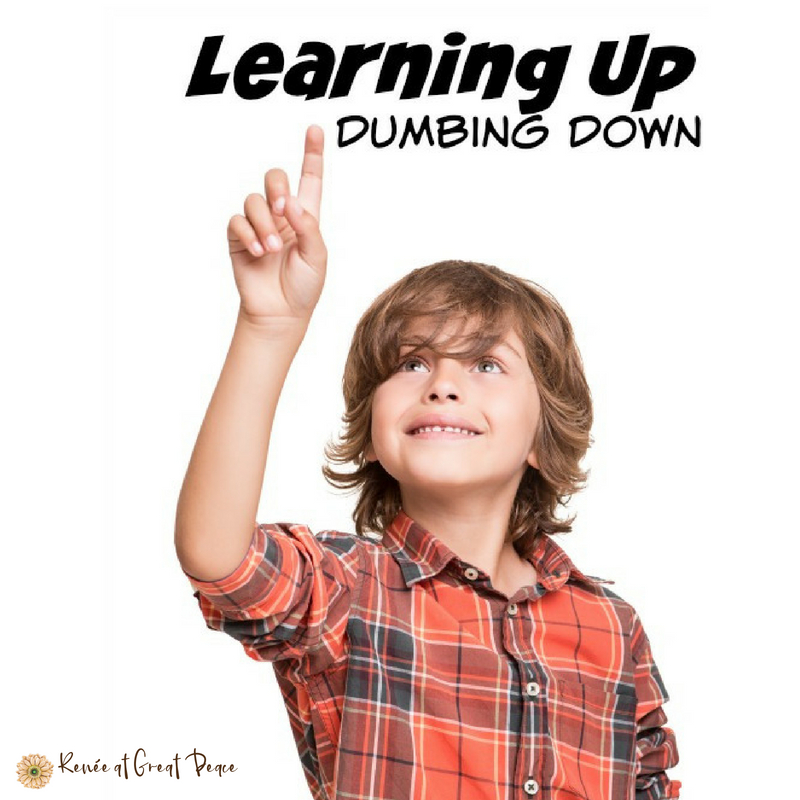
Homeschooling the Gifted Child
For this series I am exploring different aspects of homeschooling the gifted child. If you are parenting a gifted child, or suspect that you have a gifted child, I hope you’ll follow along as I explore what it’s like to homeschool the gifted child.
This post contains affiliate ad links.
This post contains affiliate advertisement links to 3rd party sites.
I’m a homeschooling mom to one amazing boy. It’s taken me a long time to admit that he is gifted because that term holds connotations that many believe is just another label in which to categorize people and children.
There are some who believe that all children are gifted and some who believe that gifted doesn’t exist. We will look at identifying characteristics of gifted children and I’ll be sharing some of my strategies for meeting the unique needs of my son.
Maybe you too struggle to identify the differences you see in your child. Maybe you are afraid of the stereotypes that surround the terms gifted, talented, smart and even genius. After all, isn’t everyone’s kid a genius?
But the reality is, no two children are alike, they all are unique individuals with different abilities. Some have a greater ability to process thoughts while others may be more articulate in speech. Our goal should be to help our children discover their unique abilities and then help them to understand the possibilities of how they can use their abilities throughout their life.
This post contains affiliate links to 3rd party sites where products may be purchased resulting in paid compensation for this blogger.
What is ‘Gifted‘?
The term, gifted, was first coined in the early 1900’s by Leta Hollingsworth Ph.D., an educator and clinical psychologist. It was used to identify those whom she believed to be intellectually superior. She is considered the founder of gifted education. Her work paved the way for modern gifted education research. The term has stuck.
But What Does ‘Gifted‘ Mean?

Gifted, it would seem, is difficult to define. Different organizations or individuals who study or advocate for the gifted, define it in slightly different ways.
Generally speaking, the term Gifted identifies individuals with advanced cognitive, intellectual, or creative abilities which may occur in just one area of learning and cognition, like math, or across multiple areas. Often, students with such abilities learn and develop in asynchronous ways; which means that one area of learning might be advanced while another area of learning might be on target or even behind level.
Yet, the truth remains that such children have a unique, or special, need to be able to learn in a way which best suits their own learning abilities.
I believe all children, all people are blessed with gifts, talents and abilities. For me, as a Christian, I believe that God blesses each person with such gifts so that they can foster them into worthy skills for their lives. But in the educational and psychological world the term is specific to students who learn and mentally develop at a faster, more intense rate than is typical of their age peers. It isn’t an elitist term, as some would think, but rather an identifying term used to help those who need options to study at an advanced rate.
Whatever term you prefer, gifted, talented, accelerated, or smart, if you have a child with advanced developmental learning abilities it is imperative that you don’t deny their abilities but rather help them to develop their talents. To avoid your child’s talents is to deny them the right to be the person they can become or that perhaps they are intended to be.
Identifying Characteristics of a Gifted Child
▬ Gifted: One who has advanced cognitive, intellectual, creative, and/or emotional processes that progress at a faster more intense rate and/or has higher abilities to retain and disseminate information than what is considered to be the typical developmental process.
▬ Emotional Intensity is the heightened or sensitive response to emotional stimuli. Gifted individuals can experience their emotions in a more intense way than what is seen in one who is developing at a typcial rate.
One may witness rapid extremes in emotional responses in the gifted individual. For example someone once described witnessing my sons emotional response from joy to anger, as going from 0 to 60 in 2.2 seconds. I will be sharing more information about emotional intensity on Wednesday of this week.
▬ Asynchrony or Asynchronous Learning is when a child develops at different rates in diffrerent areas of learning and social development. You might see a young child conversing with an adult about the political climate on the nation and then watch as they struggle with writing a few short sentences.
▬ Over Excitabilities (OE’s) are seen when a child has a extremely heightened sense of response to stimuli. Through the mind’s ability to be process at a more rapid rate, they may show an increased sense of awareness, excitement and sensitivities to experiences.
Kazimierz Dabrowski, a Polish psychiatrist, theorized that there are five areas of OEs, psychomotor, sensual, intellectual, imaginational, and emotional. Such excitabilities may be seen as extreme joy or extreme frustration.
▬ Inconsistent Social and Emotional Development is often seen in children who are gifted. These inconsistencies are most often noticed when a child is among an age based peer group. The child may exhibit signs of being socially immature or overly mature, but their social skills are inconsistent when compared with the skills found in children of the same age.
You may find that the gifted child is more comfortable around either younger or older children or perhaps adults but not necessarily around children their own age. I’ll be talking more about social development and the need for guided instruction on Thursday.

For me one of the greatest things that I learned is that the same brain that controls the thinking and mental reasoning processes is the same brain that controls emotional responses, yet the brain of the gifted or advanced child is still in the body of a, well, child.
Choosing Homeschooling for the Gifted Child
When my child was very little, we began to notice that he was doing things that were outside the abilities of the other children that were his age. For example, he was identifying colors, shapes, letters, and numbers well before he turned 2 years of age. He continued to grow and advance quickly so that by the time he was school age he was already doing work that was beyond Kindergarten age or even first grade.
While there may be some school districts that are able to meet the needs of advanced learners, I knew that the one in which we live was not. So we made the choice to educate at home. Coupled with our desire to see him educated in a faith filled environment and to ensure that he would be challenged in a way that was appropriate to his learning style and academic ability, we knew that home education was and remains the right choice for our son.
But is it the right choice for your child? That is a decision that each parent must make. Each state and local school district has it’s own set of standards for identifying and instructing students with advanced learning abilities, or students who are gifted academically. I suggest beginning with your state department of education, then researching their rules, laws, and codes for gifted education. You might be surprised that your state offers a great deal of resources for students with gifted abilities, and then again you may be surprised by a lack of resources.

What can homeschooling offer that public and private schooling can’t?
- Homeschooling allows you, the parent to set a course of study that is unique to your child.
- In the home, you can help your child discover areas they are passionate about learning and provide opportunities to fully explore those areas until they have exhausted the learning possibilities.
- You can steer your child’s education to meet their need.
- You can offer them a completely customized education.
- They can learn at their own pace rather than a pre-conceived idea of what is someone else’s right.
- And you, the parent don’t have to spend so much time fighting an institution and bureaucracy to meet the individual needs of your child, because you will have taken the task in hand.
“The homeschool parent not only instinctively knows those needs most of the time, but also can offer the flexibility and resources necessary to meet them much better than a classroom teacher who has a large number of students.” — Cindy West, Homeschooling Gifted and Advanced Learners, 2012, p. 5.
What resources are available for home educators of gifted children?
I answer this question specifically in this post. I’ve shared a list of resources as well as links to those resources. But the short answer is that there are a lot of resources available.
What if I’m not smart enough to teach my gifted child?
One of the biggest goals of any homeschooling parent is to teach our children to be independent learners. Gifted children are filled with questions. in this post. and your role is not to answer the question for them, but rather to help them to learn to find the answers through research, experimentation, observation and study.
I assure you, my son is “smarter” than I am academically, yet I have more experience than he does. So I use the experience I have to guide him on his journey of discovery. (Oh, by the way, don’t tell him that I said he’s “smarter” than me, he doesn’t need to know that just yet.)
My child is a bit “different” and I’m not sure he’ll be socialized right.
- Yes, gifted children are different than the typical child. They experience life with more intensity both emotionally and academically.
- A group classroom can lead to over-stimulation, anxiety, disruptions and more, and in my opinion, teachers who have large numbers of students simply aren’t equipped with resources to meet the need of an individual child.
- Homeschooling allows you to truly guide the teaching of your child in what is acceptable social behavior and what isn’t acceptable.
Explore more about the intense emotions that gifted children feel as well as suggestions for helping them learn to cope.

FOLLOW THE ENTIRE Homeschooling the Gifted Child SERIES

Parenting Gifted Children Books to Read
- Parenting Gifted Kids, Dr. James Delisle
- Homeschooling Gifted and Advanced Learners by Cindy West
- Misdiagnosis and Dual Diagnosis of Gifted Children by Olenchak, Goerss, Beljan, Webb, Webb, & Amend
- How Am I Smart, A Parents Guide to Multiple Intelligences by Kathy Koch
- On the Social and Emotional Lives of Gifted Children by Tracy Cross
- Raising a Gifted Child by Carol Fertig
- Emotional Intensity in Gifted Students by Christine Fonseca
This post is linked Up Here:
You May Also Enjoy















6 Comments
Gabby
I’m finally getting on board with the idea that my oldest (5) is probably gifted, and your article just explained her too perfectly. I knew she was highly intelligent because she started reading so young (words at 3 and books at 4). But the emotional highs and lows aren’t something I associated with her intelligence. She’s so dramatic and high strung.
I’m looking forward to the rest of your series!
Renee Aleshire Brown
Sometimes seeing the context of Gifted by breaking down the terms is truly eye opening isn’t it? That’s how I felt when I first started to research what “gifted” really means.
Thanks for coming by Gabby. I hope you enjoyed your visit.
Carissa
I’m so excited to have found your blog. My daughter is 2 1/2, and has always been “different”. Very high need, intense, doesn’t seem to need much sleep, lots of social anxiety, etc. We knew she was a smart cookie, but just recently we’ve started with an occupational therapist for suspected sensory processing issues, as well as a speech therapist for some atypical means of communicating (although she is extremely verbal). They’ve both been pretty taken with how intelligent she is, and have hinted at giftedness. The more I research it (particularly 2e), the more everything seems to make sense. I had always been determined to homeschool, but this discovery had made me worry if I was out of my depths. You’ve really encouraged me to still go for it and not be intimidated! I can’t wait to read the next installment, thank you!
Renee Aleshire Brown
Carissa, I’m so glad you found me as well. I get intimidated too, still. But I remind myself that if I just provide for him and give him the tools he needs he’ll learn. I guide him in social/emotional far more than educational. In that realm I think I’m more of a facilitator. Don’t get me wrong I did/do teach in some areas but generally he gets it quickly and we move forward. But letting him learn where his interests lie, has been one of the best options.
Lisa
My 8 yr old daughter is gifted. We have decided to homeschool her starting this fall. She is experiencing more social anxiety and sensitivities as she is getting older. This past year in school she had a large class with a lot of behavior problems. At the end of the school year she did not want to go anymore. I am hoping homeschooling will engage her more and motivate her. I want to help her get through some of her anxieties and learn to deal with her sensitivity issues as well. Thanks for the info.
Renee Aleshire Brown
Welcome to Homeschooling.
First, Hugs! It’s overwhelming at first, but you don’t have to rush. Take your time and figure out what you are doing.
I recommend this: 10 Homeschooling Words You Need to Understand. Especially note, “DeSchooling” I’d say both you and she will need time to do that. Which will allow you time to research, get your bearings and make a plan.
I recommend for gifted students, Prufrock Press
Also in case you haven’t found it, here is a link to my Gifted Learning page with links to various other gifted blog posts and resources.
Welcome to Great Peace Academy, I hope you will find a warm welcome, and helpful tips and resources to help you with you as you begin gifted homeschooling.